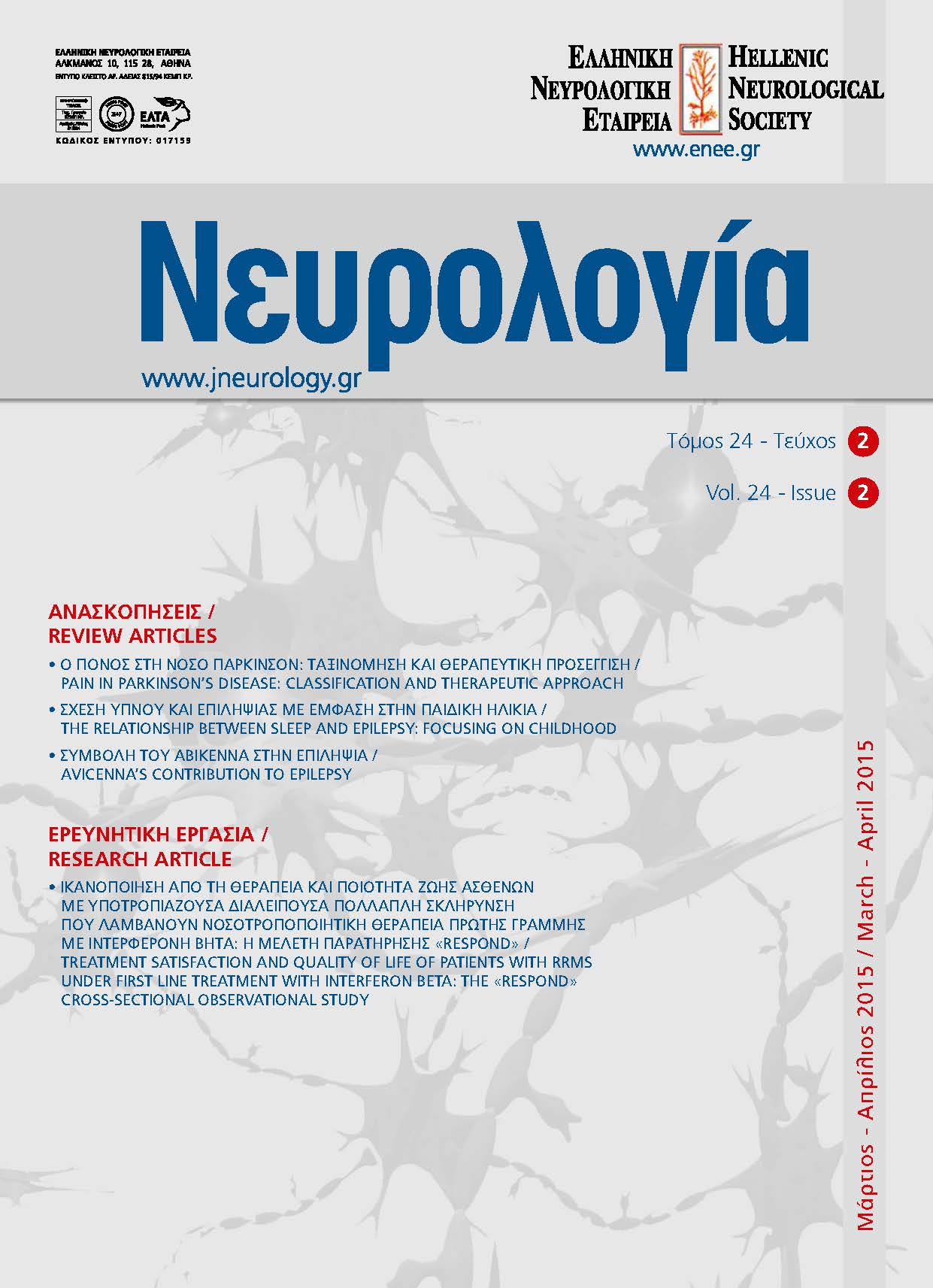Treatment satisfaction and quality of life of patients with RRMS under first line treatment with interferon beta: The «RESPOND» cross-sectional observational study
Keywords:
Relapsing-remitting multiple sclerosis, interferon beta, treatment satisfaction, quality of life, TSQM, ΕQ-5D-3LAbstract
Disease modifying treatments (DMTs) represent the cornerstone in the treatment of relapsing-remitting
multiple sclerosis (RRMS). Factors such as side effects and convenience of using DMTs directly affect satisfaction with treatment as well as quality of life of the RRMS patient. There is no data relating to treatment
satisfaction of patients with RRMS in Greece. In this perspective, the present multicentre, cross-sectional,
epidemiological study was conducted in Greece between 21-Feb-2012 and 04-Dec-2012 under real-life
clinical practice conditions in order to assess DMT satisfaction and quality of life of patients with RRMS having been treated with approved first-line DMT therapies for at least one year prior to study entry, through
the use of the TSQM v1.4 (Treatment Satisfaction Questionnaire for Medication) and EQ-5D-3L questionnaires respectively. A total of 178 patients (mean age 39.7 ± 5.6 years, 70.2% women) with disease duration of 7.4 ± 6.6 years and a history of 1.2 ± 0.6 relapses during the last year prior to study entry were
enrolled in the study by 13 investigators. Of the patients, 59.6%were being treated with interferon β-1a
( IFNβ-1a) and 40.4%with IFNβ-1b. In terms of treatment satisfaction and with a score of 100 representing the highest possible TSQM score, denoting optimal treatment satisfaction, a mean score of 62.9 was
observed for the «global satisfaction» domain, while mean scores of 62.5 , 61.9 and 61.1 were recorded
for «effectiveness», «side effects» and «convenience», respectively. Regarding the quality of life, 71.9%
and 53.9% of the patients reported moderate/extreme «anxiety/depression» and «pain/discomfort», respectively, 70.8% reported problems with «mobility», and 56.7% with «usual activities», while only 33.0%
with «self-care». The EQ visual analog scale (EQ-VAS) score in the total population was 66.6±18.6 (median
70, interquartile range, 50-80). There was a positive correlation between the EQ-VAS and the «global satisfaction» domain of the TSQM (Spearman ρ = 0.37, p < 0.001). In conclusion, patients were satisfied with
their treatment with the lowest satisfaction recorded in the «convenience» domain of the TSQM. Novel
therapies with improved convenience and a multidisciplinary patient-centered approach are expected to
further improve overall treatment satisfaction as well as quality of life of patients with RRMS.


